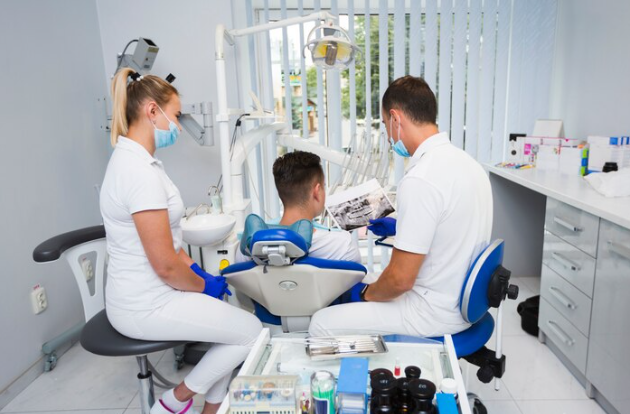Your kid’s baby teeth aren’t just adorable little placeholders—they’re actually clues about their future dental health. Those tiny chompers can reveal a lot, from the risk of cavities down the road to how their adult teeth might develop. Early signs of weak enamel, spacing issues, or even bite problems can start showing up long before their permanent teeth come in.
The good news? Catching potential issues early makes a big difference. Paying attention to baby teeth can help prevent bigger dental problems later, saving you time, money, and a whole lot of stress. From keeping up with brushing habits to knowing when to visit the dentist, a little effort now can set the stage for a lifetime of healthy smiles.
So, what exactly can baby teeth tell you? And what should you be looking out for? Let’s break it down in a way that’s simple, straightforward, and easy to understand. Because when it comes to dental health, starting early is always a smart move.
How do baby teeth indicate a child’s future dental health?
Baby teeth can be an important indicator of a child’s future dental health, offering early signs of potential problems with their adult teeth. Here’s how baby teeth provide clues:
- Tooth Decay and Oral Hygiene Habits: Early signs of cavities or decay in baby teeth can signal a child’s future susceptibility to dental issues. If baby teeth are prone to decay, better oral hygiene practices, such as brushing and flossing, may be suggested to prevent future cavities in permanent teeth.
- Alignment and Bite Issues: The alignment of baby teeth can predict potential orthodontic issues. If baby teeth are overcrowded, misaligned, or have a noticeable gap between them, it may indicate that permanent teeth will have alignment problems, possibly requiring braces or other corrective treatments in the future.
- Timing of Tooth Eruption: The timing of a child’s baby teeth’ emergence and fallout can also provide insight into future dental development. Delayed or early eruption may signal possible developmental issues or genetic factors that affect the growth of adult teeth, which could impact the child’s future dental health.
- Jaw Development and Bone Health: The health and development of baby teeth can offer clues about the child’s jaw and bone health. Issues like tooth spacing or the premature loss of teeth may suggest underlying jaw development concerns that could affect the eruption and alignment of adult teeth.
Baby teeth are an early indicator of a child’s future dental health, allowing for early intervention and preventive care to help ensure healthier, straighter, and more cavity-free permanent teeth.
What can baby teeth reveal about potential orthodontic issues?
Baby teeth can reveal several potential orthodontic issues affecting a child’s permanent teeth. Here’s how they provide insight into future dental alignment and bite problems:
- Spacing and Crowding: The spacing between baby teeth can indicate how the permanent teeth will come in. If there is overcrowding or insufficient space, it might signal that the child will need orthodontic treatment, such as braces, to correct the alignment once the permanent teeth start coming in.
- Alignment and Bite Problems: Misalignment of baby teeth can suggest the child may experience similar issues with their permanent teeth. If the baby’s teeth are crooked, rotated, or out of alignment, permanent teeth may follow suit. Conditions like crossbites, overbites, or underbites can often be predicted from the alignment of the baby teeth.
- Premature or Late Tooth Loss: If baby teeth fall out too early or too late, it can impact the development and eruption of the permanent teeth. Premature tooth loss can lead to shifting, causing permanent teeth to come in misaligned, while delayed loss can result in crowded permanent teeth when they begin to emerge.
- Baby Teeth Wear Patterns: Baby teeth wear and tear can also hint at future dental issues. Excessive wear might suggest teeth grinding or improper bite patterns, which could affect the development of permanent teeth and jaw alignment.
By monitoring the health and development of baby teeth, orthodontists can predict the likelihood of future alignment issues and provide early intervention to ensure healthier dental development.
How does early tooth development affect long-term oral health?
Early tooth development is crucial to a child’s long-term oral health. The health and alignment of a child’s baby teeth directly impact the eruption and alignment of their permanent teeth. Here’s how early tooth development affects long-term oral health:
- Impact on Permanent Teeth Eruption: Healthy baby teeth create a strong foundation for permanent teeth to erupt properly. If baby teeth fall out too early or are damaged by decay, the space for permanent teeth may be compromised, potentially leading to misalignment or crowding. Proper care of baby teeth ensures permanent teeth can come in without issues.
- Jaw and Bite Development: Baby teeth help guide the growth and alignment of the jaw, contributing to the development of the child’s bite. Problems such as premature tooth loss can lead to improper jaw development, affecting the positioning of permanent teeth and potentially causing bite issues, like overbites, underbites, or crossbites, later in life.
- Preventing Long-Term Decay: Properly cared-for baby teeth help prevent early childhood cavities, which can affect the child’s oral health. Early dental decay can damage the developing adult teeth beneath the gums, making them more prone to issues like cavities or misalignment later.
- Establishing Oral Hygiene Habits: Early tooth development is also a time to establish good oral hygiene habits. Teaching children how to care for their teeth from a young age lays the groundwork for lifelong oral health. Children who have positive experiences with dental visits and good habits tend to maintain better oral health throughout their lives.
Early tooth development is a critical phase for establishing good oral health. Parents can help ensure a smoother transition to healthy, properly aligned permanent teeth and prevent long-term dental problems by taking care of baby teeth, monitoring alignment, and promoting good hygiene.
Can baby teeth health predict the risk of cavities in permanent teeth?
Yes, the health of baby teeth can help predict the risk of cavities in permanent teeth. Though temporary, baby teeth provide important clues about a child’s future dental health, particularly regarding cavity susceptibility. Here’s how baby teeth health can indicate future cavity risks:
- Early Signs of Tooth Decay: If a child experiences cavities in their baby teeth, it may signal a higher risk for cavities in their permanent teeth. Cavities in baby teeth are often caused by poor oral hygiene, diet, or genetics, and these factors can also affect the permanent teeth when they emerge.
- Diet and Oral Hygiene Habits: The condition of baby teeth reflects the child’s oral care habits, such as brushing, flossing, and dieting. Suppose baby teeth are prone to decay due to sugary snacks or lack of proper cleaning. In that case, permanent teeth may also be at risk, as similar habits often continue into childhood and adolescence.
- Tooth Eruption Timing: Delayed eruption of baby teeth or issues with early tooth loss can lead to potential problems with permanent teeth development. If baby teeth are lost prematurely, it can cause spacing issues for the permanent teeth, leading to areas that are harder to clean and more prone to cavities.
- Genetics and Oral Health Conditions: Some children may have genetic predispositions to tooth enamel weakness, which can lead to early cavities in baby teeth. If a child has weak enamel or a family history of dental problems, their permanent teeth may also be more susceptible to cavities.
The health of baby teeth provides valuable insights into a child’s future risk of cavities in their permanent teeth. Early detection of decay, poor oral hygiene habits, or dietary influences can help prevent future dental issues by encouraging better oral care practices and early intervention.
Discover How Baby Teeth Predict Future Dental Health!
At Gentle Touch Family Dentistry, we understand that your child’s baby teeth are not just placeholders—they provide important clues about their long-term dental health. The condition, alignment, and timing of baby teeth can indicate potential risks for cavities, misalignment, or other dental issues in permanent teeth.
By monitoring and caring for your child’s baby teeth, we can help guide them toward a healthy smile in the future. Schedule an appointment with us today and ensure your child’s dental health is on the right track!



